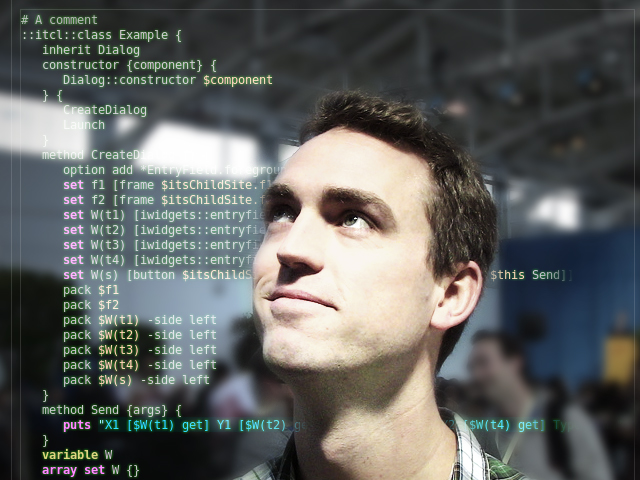
“Understanding technology and controlling it with code is becoming the next part of literacy,” said Ryan Carson in a phone chat this morning.
“No one will be able to succeed in their job in the future without that basic skill set. It’s like being able to do math or write or read.”
Carson runs Treehouse, a prominent name in the exploding market of online education for web programming. Companies like Codecademy, Bloc, and a slew of others are jostling for prominence and users as more and more people get the itch to learn how to code — or wake up one day and realize their futures depend on it.
Today, Treehouse has launched a new line of PHP instructional materials — videos, interactive code challenges, quizzes.
And while PHP may not be the trendiest programming language, Carson said it’s still one of the most important.
“No matter what the cool kids are saying about Rails and Python, millions and millions of people want to learn PHP, and a lot of the big sites still run on PHP – Facebook, Zynga, Wikipedia,” he said.
“It’s such a crazy-popular language. … It’s almost the English of the web.”
He ain’t lyin’, folks. A recent survey showed that around 67 percent of developers spent more than 50 percent of their time with PHP. And as a more mature language than its trendy counterparts (launched in 1994), PHP has begun to creep into the enterprise, a.k.a. Java’s last stand. The same survey showed that in large enterprise companies, 33 percent of devs used both Java and PHP at work.
Treehouse offers courses in a range of popular languages, and its audience ranges from school kids in traditional classrooms to adults looking for better opportunities. To those ends, the startup is focused on quality and practicality; it hires full-time teachers and experts to write and teach its courses, and all instructional material is based around real-world projects.
At that point, it’s all about the psychology of the business.
“People don’t actually want to learn technologies, they have something they want to do or want to make,” said Carson. “We actually threw away a lot of our content because it wasn’t project-based.”
Another part of the psychology and practicality is money and aspiration. Recareering and getting more cash has been a huge motivator for many Treehouse users, Carson told us.
“There’s one person in a low-paying job and they realize they could retrain; their goal is to get a higher salary. We heard from an assistant to an exec, and she got a job as an entry-level web designer and increaesd her salary quite a bit.”
Carson also touched on the startup’s nascent job-placement features, saying, “We’re trying to take you from beginner to job-ready in 3 months, and that’s at a cost of $75. And we want to place you in an entry-level developer/designer position. … We’re gonna be graduating students who are job-ready at a junior level.”
The Treehouse users who aren’t specifically trying to recareer, Carson said, are trying to branch out a bit in their current skill sets — designers trying to learn a bit of development, or web devs who need to expand into mobile.
“We just launched our iPhone and Android courses last Thursday, and the uptick is insane. We’ve seen hockey stick growth,” said Carson.
“It’s crazy; I’ve never written a line of Java, so I took our first course and built a very simple Android app. It’s always been a black box to me, but I did it. It’s a fun experience.”
And since the iOS and Android courses teach you how to build the same app, a Magic 8 Ball bit of software that returns strings randomly each time you run it, learners can quickly grasp some of the basic differences between the two platforms.
Over the next couple weeks, Carson told us, Treehouse is going to become more game-like with its features and user interface. “Badges are great,” he said, “but there’s a whole ‘nother level that we think can be added to that.”
The gamification of programming education might have some special meaning for some of Treehouse’s most invested users: School teachers.
“Schools are having a hard time teaching technology because they can’t keep up with the curriculum,” said Carson. “We have hundreds of teachers that use Treehouse in the classroom, and I think they pay for it themselves. They don’t have the budget. … We’re not trying to replace teachers; we’re trying to give them superhero powers, to add another string to their bow.”
For young learners and complete programming noobs, Carson said the newest PHP courses might also be a simpler point of entry. “It’s actually easier to learn than JavaScript or Ruby. … It doesn’t have to be object-oriented. You can kinda jump right in. And from a server support perspective, almost every web company offers PHP hosting.”
Of course, Carson has a soft spot where PHP is concerned. “It was the first web language that I coded in. I used to use O’Reilly’s PHP Cookbook. And back in 2003, that was a great way to learn.”
We can all be grateful that, as great as the O’Reilly lineup is, we have so many online resources now for coding education — at all price points and skill levels — to prepare us for Carson’s vision of a tech-literate future.
Treehouse currently has more than 12,000 paying students and more than $3 million in annual revenue. The startup’s Portland-based team includes more than 50 employees.
[youtube http://www.youtube.com/watch?v=ZUAg51kA42M&w=640&h=360]


